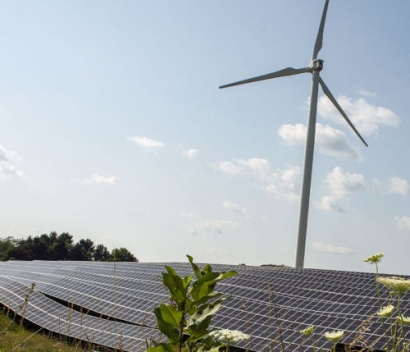
The Powering the Good Loan Fund offers $1 million to farms across Wisconsin. The interest rates are low, which means farmers can participate in the project without worrying about investing too much. Organic Valley hopes to add solar electric systems and geothermal cooling and heating to the state’s agricultural operations.
With a switch to renewable energy, dairy farmers would be able to run their farms the same way they are now. They require a significant amount of energy to operate, and solar panels would easily provide more than enough power. Some of the requirements include energy for milk plate coolers, lighting in barns and other buildings, and electricity to run the milking system itself.
If dairy farmers agree to this low-interest loan, they would also be helping the environment. Renewable energy cuts emissions from fossil fuels, and there is an endless supply, so farmers never have to worry about a power outage.
Plus, farms would benefit economically. The interest rates of this loan are low, and renewable energy will also reduce taxes. The farms can generate an extra stream of income if they install renewables. Extra money would be helpful in multiple ways, including creating healthier food plots for cattle, adding more storage and installing additional solar panels.
More than a dozen farms have already applied for this loan. Farmers realize they need to invest in renewables to have a sustainable future in agriculture. As more interest in the program grows, Organic Valley is expected to give more money to fund the project.
Once a few farms in the Wisconsin area join the project, other farmers will see how well it is working and want to invest in renewable energy. Farms that have already implemented solar have made three times more revenue than if crops filled their land.
Farming has seen a shift in its practices in the past few decades, so there’s no reason farms shouldn’t join in on the trend of solar and geothermal energy. Smaller, family-owned operations aren’t as common anymore as they’re being replaced by larger corporations. However, smaller farms have something to learn from larger companies that adopt sustainability and regenerative agriculture.
Although there is $1 million available for these small farms, Organic Valley must allocate the money wisely so as many places as possible can participate. Organic Valley’s cooperative works with nearly 2,000 farmers across the country, and this investment in Wisconsin dairy farms will only add to that number.
The loans for energy-efficient materials, such as plate coolers, light-emitting diode (LED) lighting, ventilation and insulation, will be available for three-, five- and 10-year terms. Interest will be at a maximum of 4.24%, and each farm that takes on a loan will have a maximum of $25,000.
Farmers that would rather have the solar electricity system would get loans with 12-, 15- and 20- year terms. The goal is to keep interest rates below 5%, and the maximum loan amount available is $90,000.
The future of agriculture will become sustainable and healthy as more farmers invest in clean energy. Those who take on this initiative will see benefits almost immediately and pave the way for the next generation of farmers. Agricultural operations, the environment and production will all benefit from this investment in green energy.

